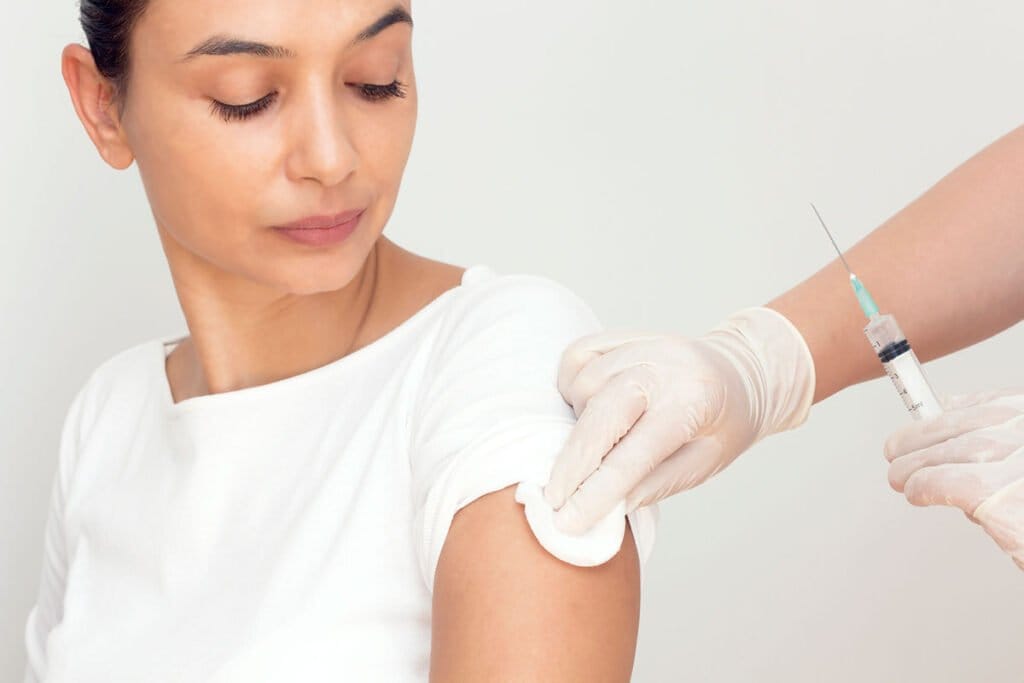The Moderna COVID-19 Vaccine May Cause Fillers to Swell. Here’s Why You Should Still Get Vaccinated.
| ABCS
News has been circulating that a few of Moderna’s COVID-19 vaccine trial participants experienced swelling in areas where they have dermal fillers. While this may sound alarming, did you know temporary swelling in dermal filler treatment areas is a fairly normal reaction after receiving a vaccine or contracting an infection? It is also easily treatable, and should not stop you from getting the COVID-19 vaccine.
To help those with dermal fillers prepare for vaccination, this blog post will explain how this inflammation occurs, the level of risk posed by this reaction, how your doctor can manage it, and why it is safe to proceed with the vaccine even if you have dermal fillers.
Vaccines cause an elevated immune response by definition
When you receive a vaccine or contract an illness such as the flu, your body’s immune system starts to fight the foreign virus or bacteria in your body. This is why vaccines work: your immune system responds to the specialized piece of the virus that is injected, effectively learning how to fight the virus in case you encounter it again in the future.
Dermal fillers, like any foreign object in your body, may react when your immune system is triggered
This normal elevated immune response does not solely affect viruses and bacteria. Any other “foreign” object in your body, such as a pacemaker, breast implants, artificial joints, and dermal fillers, may also be subject to the inflammatory immune response as your body goes on high alert.
Vaccines and illnesses aren’t the only things that can trigger this kind of response: dental cleanings can potentially release bacteria into your bloodstream and cause this type of reaction, as well.
How your cosmetic surgeon can help with this inflammatory response
While this kind of reaction is fairly normal, it’s still a good idea to talk to your cosmetic surgeon about your dermal fillers and any other medical implants you have before being vaccinated for COVID-19. Your physician may suggest different ways of preventing or treating the inflammation, depending on your specific case and medical history.
Some doctors like to prescribe a preventative medication; others may ask you to look out for swelling or other side effects and treat them as needed with antihistamines, antibiotics, local anti-inflammatory medication, or a cold compress. Enzyme injections to dissolve your fillers are another option; however, this isn’t typically necessary.
A note on steroids: while they are often used to reduce swelling, because they suppress the immune system and could interfere with your body’s healthy antibody response to the vaccine, most physicians will not use steroids as a first line of treatment for post-vaccination swelling.
The risk of inflammation should not deter you from getting vaccinated
If you remain concerned about this potential COVID-19 vaccine reaction, talk to your board certified cosmetic surgeon. They will be equipped to handle the complications that may arise from cosmetic treatments including dermal fillers, and can answer questions specific to you.
While different physicians may employ various methods of managing this potential complication, we all agree on one thing: the potential reaction is no reason to skip the vaccine. Treatment of dermal filler reactions is highly manageable, and the risks associated with contracting COVID-19 far outweigh those posed by dermal filler swelling.
